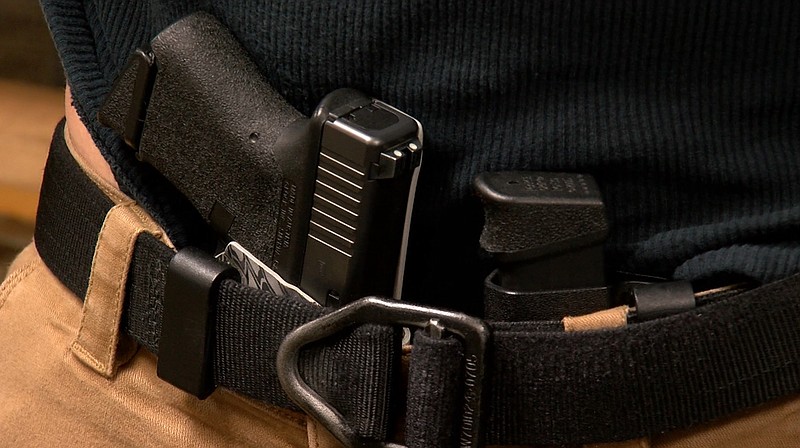
Concealed Carry Tips: Understanding and Managing Risk
Concealed carry is a great way to protect yourself from attackers looking for an easy target. But before you buy concealed carry vests, there are things you should know about the territory to keep your risk as low as possible. We’ll discuss what those things are so you can make the right choice for you and your family!
Concealed Carry Vs Open Carry
The most common misconception about concealed carry is that it’s a more risky choice than open carrying. In reality, the opposite holds true. Open carrying creates attention and can lead to problems while concealing your gun leads to less confrontation and fewer conflicts with law enforcement.
Open carry is legal in 45 of 50 states. The remaining five states allow for concealed carry with a permit, which requires training and testing before receiving one. Concealed carry also requires an individual to have at least 21 years old (18 in some states), be a legal resident of the state, and have zero felony convictions.
Understand Your Risk

It’s vital that you assess your own risk level before choosing to carry a gun, as it can have serious consequences for yourself and others in the event of an accident. Understand that even when handled responsibly, firearms are dangerous devices. That means you should never store them in a place where they can fall into the wrong hands.
In addition, you should know that carrying without really knowing how to use your firearm increases risk. It’s vital that you take at least some time to learn about handling and shooting before you decide whether concealed carry is right for you.
Is Concealed Carry Right For You?
If you’re confident about carrying a gun responsibly and following all laws surrounding firearms ownership in your state, then you are good to go. A firearm can provide peace of mind when faced with an aggressive attacker. But if that doesn’t seem like something that you’re comfortable with, don’t let this article pressure you.
Know When To Draw Your Weapon And Use It Wisely
When you’re carrying concealed, it’s important to know when and how to draw your weapon. This is an enormous responsibility that should never be taken lightly. So, make sure you educate yourself on the subject before making any decisions.
Also, you might want to consider whether drawing your firearm will escalate the situation. If someone doesn’t pose an immediate threat to your life, it’s best to avoid drawing your gun. And if you do draw it, make sure that the safety is on and aim for non-vital parts like the arms or legs.
It can be hard to know what to do when someone has drawn their firearm against you, but it’s safer to not engage them and just try to get out of the situation.
Check Your State’s Concealed Carry Laws
Every state is different when it comes to concealed carry laws. So, make sure you know the law in your area before carrying a firearm. If you’re not familiar with these regulations, consider contacting an attorney or speaking to someone at the firearms department of your local PD for clarity on what’s legal.
Concealed Carry And State Lines

One of the most important things to know about concealed carry is how it applies when crossing state lines. For example, if you’re traveling from a state where open carrying is legal, there’s nothing wrong with doing so in other states as long as you have your gun permit within reach. However, if you choose to travel with a concealed weapon, you’ll need to follow the gun laws in your destination state.
It’s a common misconception that concealed carry is riskier than open carry, but in reality it’s safer because people are less likely to notice or confront someone with their gun hidden. Assess your own level of risk when deciding whether concealed carry is right for you!
Know Where Concealed Carry Is Not Allowed
It’s important to understand that concealed carry is not allowed in certain places, such as schools and government buildings. And you should never carry a weapon without informing the local authorities first. The consequences of violating these rules can be severe, so it’s best to take note of them before carrying concealed anywhere.
This blog post has been a great introduction to concealed carry! Now that you’re armed with the basics, it’s up to you to decide what will work best for your lifestyle. The decision is entirely personal, and there are no right or wrong answers. So don’t let anyone make you feel pressured into carrying a gun if that’s not what you want for yourself.




